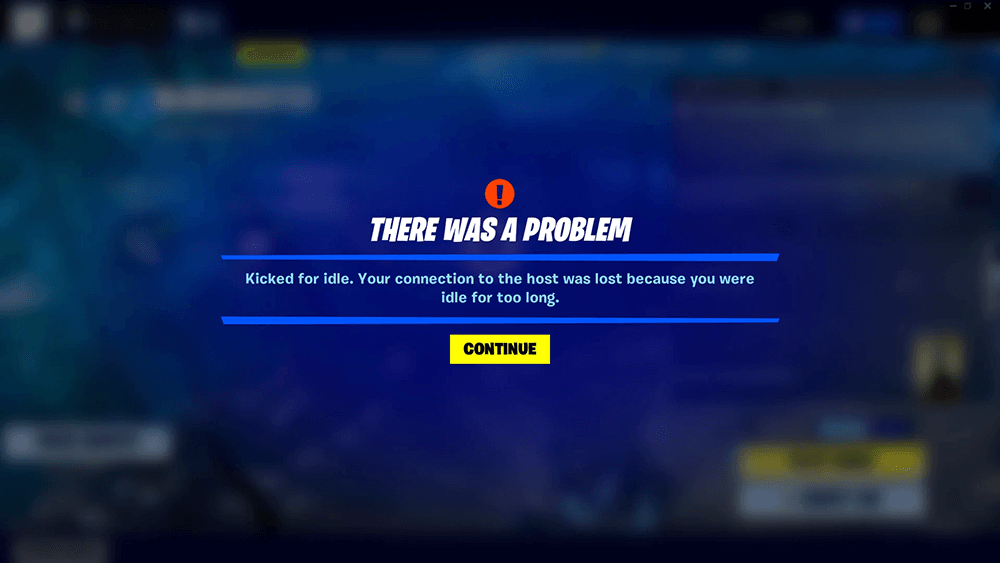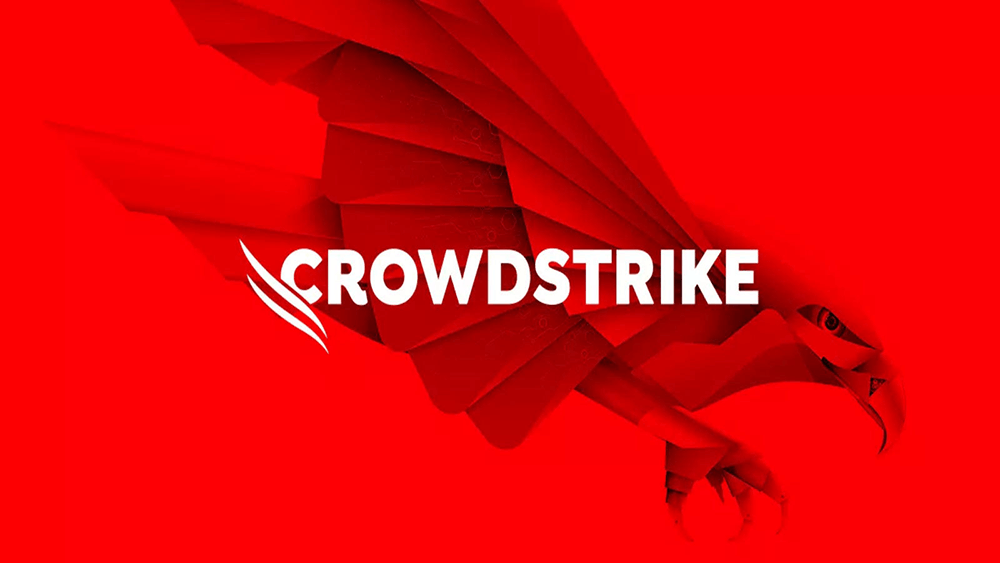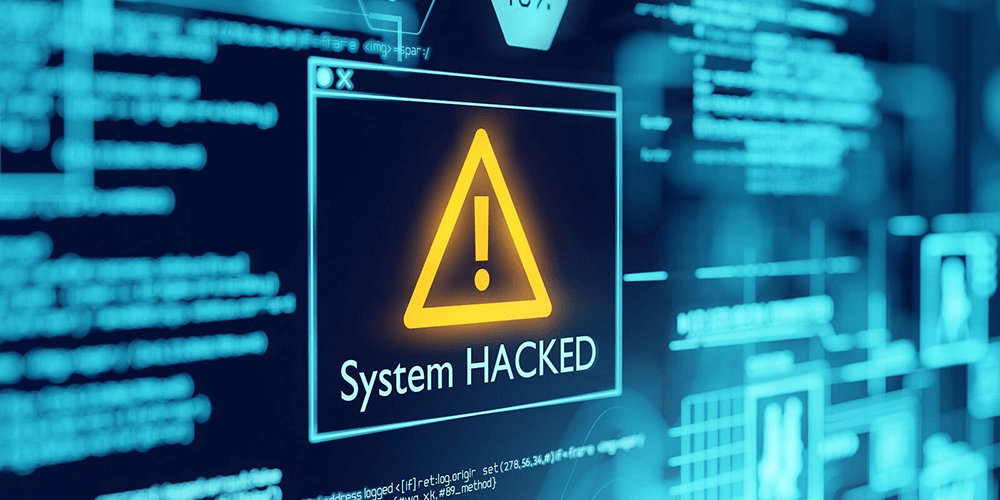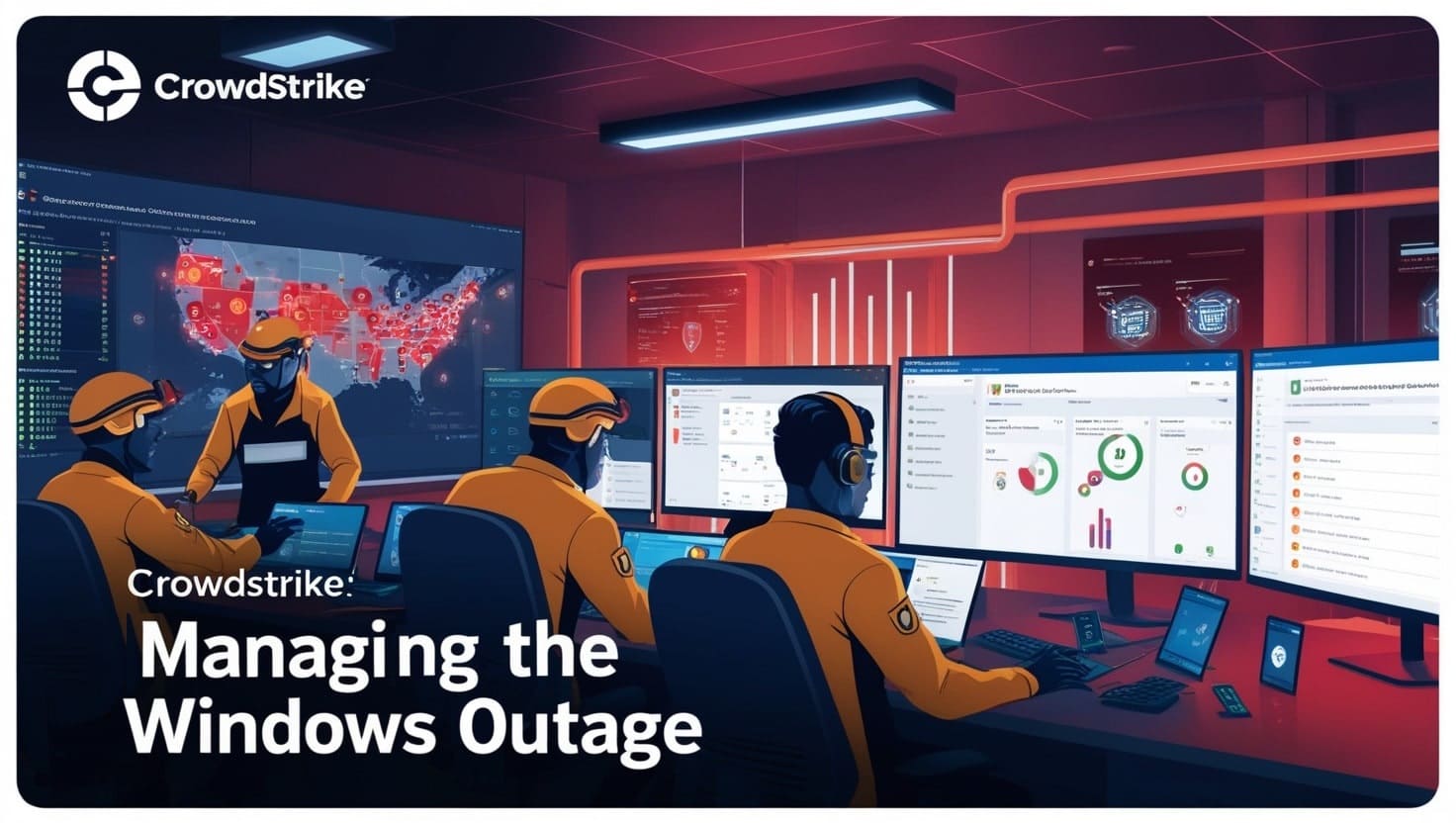
Remember the time you were scrolling Instagram reels and it just wouldn’t load? You may have re-switched the wifi router or refreshed the app a few times until you realised that the app was glitching or was not operational for many. Imagine that you're in the middle of a heated game of Fortnite when suddenly, you're offline. Frustrating, right? These situations are examples of tech outages, and they happen more often than you might think. But did you know there are companies out there working to prevent these issues and keep us all safe online? One such company is CrowdStrike.
In this blog, we will navigate through what CrowdStrike does and why tech outages should matter to you.

CrowdStrike is like a digital guardian. It's a cybersecurity company that secures other businesses and their data from online attackers aka hackers. Think of them as a high-tech security guard for the internet.
In today's world, where we do almost everything online - from shopping to studying - cybersecurity is super important. CrowdStrike helps keep our personal information safe and stops cybercriminals from causing chaos.

For example, when you log into your favourite online game, CrowdStrike might be working behind the scenes to make sure no one can steal your account info or use cheats to ruin your gaming experience and also prevent you from engaging in any unethical practices.
Certainly! Let's explore some common causes of tech outages and look at a recent example.
Server crashes, hard drive failures, or other physical equipment malfunctions.
Errors in code can cause systems to crash or behave unexpectedly.
Problems with internet connectivity, routers, or network infrastructure.
Deliberate attempts to disrupt services, such as DDoS (Distributed Denial of Service) attacks.
Mistakes made during system maintenance, configuration changes, or updates.
Loss of electricity at data centres or key infrastructure locations.
Events like earthquakes, floods, or severe storms that damage physical infrastructure.
Too many users trying to access a service simultaneously, overwhelming the system.
When a service relies on another company's infrastructure, and that infrastructure fails.
Planned updates or changes that don't go as expected and cause unintended outages.
One of the most significant recent tech outages occurred on March 5, 2024, affecting Microsoft services. This outage impacted multiple Microsoft products, including Teams, Outlook, OneDrive, and Azure cloud services.The outage lasted for several hours and affected users worldwide, disrupting work and communication for millions. Businesses and educational institutions, which rely heavily on Microsoft's cloud-based services, were particularly impacted. Initially, Microsoft attributed the outage to a networking configuration issue but later clarified that it was caused by a problem with their Wide Area Network (WAN), which connects Microsoft data centres globally. The issue arose from a change in their network infrastructure that didn't go as planned.

This incident highlights that even major tech companies with robust systems can experience significant outages. It also shows the far-reaching impact of such outages in our increasingly digital world, affecting everything from business operations to online education.
CrowdStrike is like a digital detective and is always on the lookout for suspicious activity that could lead to an outage. Using artificial intelligence and machine learning, they can spot potential threats before they become big problems.
When an outage does occur, CrowdStrike jumps into action. They help figure out what went wrong and how to fix it fast. It's like having a tech-savvy friend who's always there to help when your computer acts up. CrowdStrike plays a crucial role in preventing and resolving cyber outages. Let's break down their approach:
When an attack occurs, CrowdStrike's tools can identify it quickly, often within seconds.
Their systems can automatically take action to stop threats, like isolating infected devices from the network.
CrowdStrike helps determine how an attack happened and what was affected.
They work to limit the spread of an attack and prevent further damage.
CrowdStrike assists in getting systems back online safely after an attack.
Understanding cybersecurity is crucial in our digital world. It's not just about protecting your gaming accounts or social media profiles (although that's important too!). It's about keeping all your personal information safe from people who might want to misuse it. And in a world where you are driven by technology, you must know the right way to protect your data at every step.
Even if you're not planning to become a cybersecurity expert, there are simple things you can do to stay safe online:

If you aspire to delve into the world of cyber security, please note that there are various occupations and fields to choose from. Here are some future-oriented careers in this line of work:
Protects computer networks from threats and responds to security breaches.
Tests systems for vulnerabilities by trying to hack them legally.
Focuses on securing data and applications in cloud environments.
Specialises in securing AI systems and protecting against AI-based attacks.
Ensures the security of connected devices in homes, cities, and industries.
Focuses on securing cryptocurrency transactions and blockchain applications.
Analyses digital evidence to solve cybercrimes.
Develops security measures for the emerging field of quantum computing.
Works on developing laws and policies related to cybersecurity.
Specialises in security systems using fingerprints, facial recognition, etc.
Leads an organisation's overall cybersecurity strategy.
Educates employees and the public about cybersecurity best practices.
Studies and develops defences against malicious software.
Gathers and analyses information about current and potential cyber threats.
Develops automated systems for detecting and responding to security threats.
Companies like CrowdStrike play a huge role in keeping our digital world running smoothly and safely. By understanding what they do and why tech outages happen, you can be more aware of the technology you use every day. You can also be the informed one who helps their parents, teachers or friends when such a situation arises.
Stay informed, stay safe, and remember – the next time an app or website isn't working, there might be more going on behind the scenes than you realise!
© Knowledgeum
